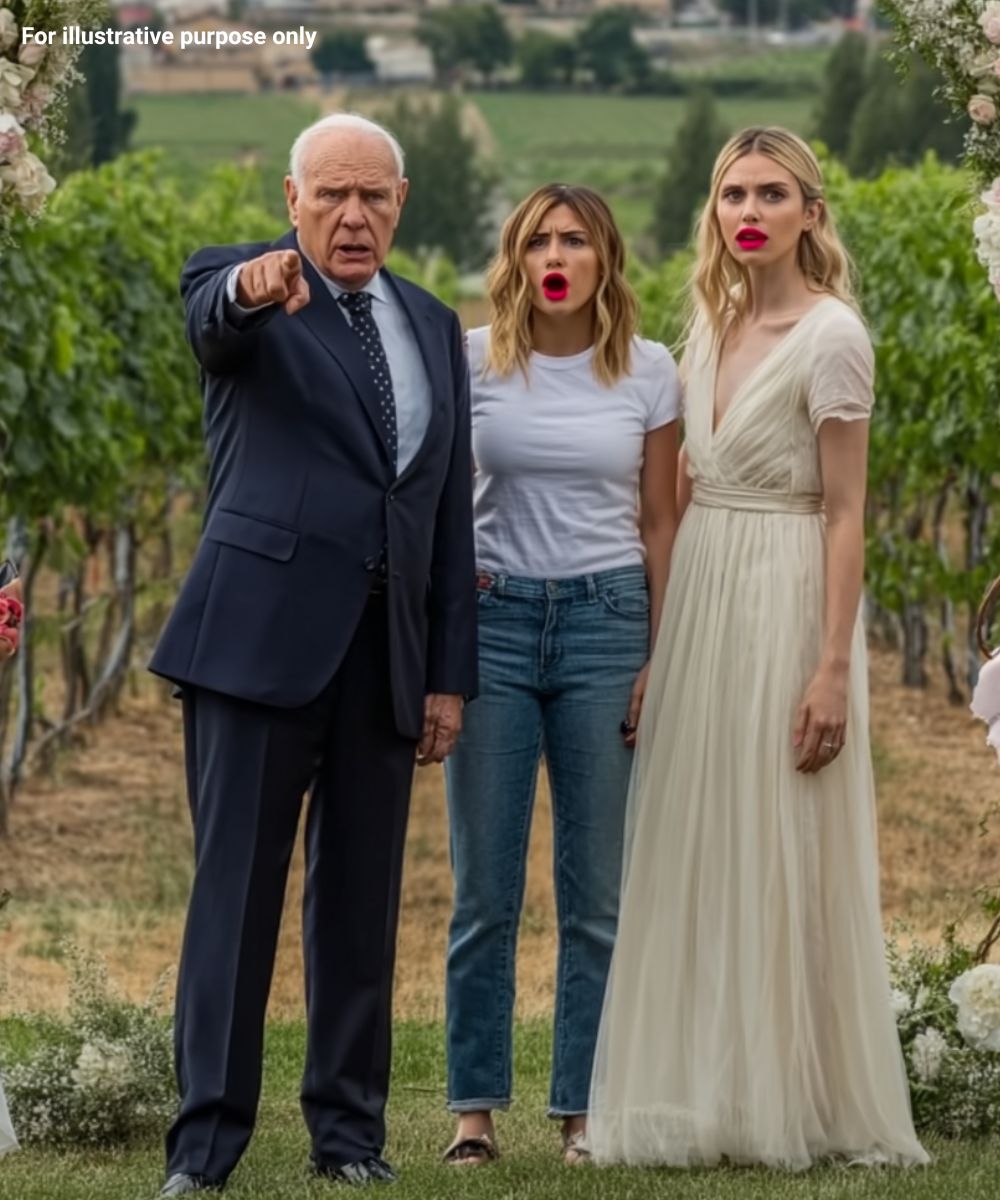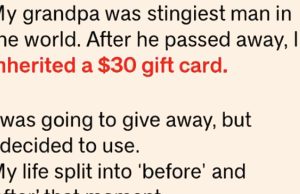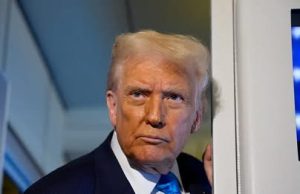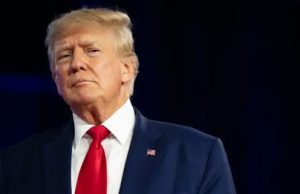
I arrived at my sister Madeline’s wedding in a wrinkled secondhand skirt, the kind you wear when you’re told last-minute you’re “technically invited.”
It was a brisk spring afternoon in Sonoma, the kind where the sunlight gleams off wine glasses and the air smells like smoked lamb and garden roses. Everyone seemed to be sipping something sparkling. Not me.
The crowd glittered in tailored tuxes and silk gowns. I caught a glimpse of myself in a glass panel—windblown hair, no lipstick, and eyes still puffy from a red-eye flight. I looked like someone crashing the event.
Mom spotted me from across the patio. “Well,” she said, barely masking her disapproval. “At least you’re not wearing sneakers.” No embrace. No, “Glad you came all the way from Chicago.” She turned on her heels, moving toward someone richer and shinier.
My sister Madeline didn’t even look up. She was surrounded by old sorority friends, her hand tucked into the crook of her fiancé’s arm. Her dress sparkled like it had been hand-beaded by angels—and probably cost more than my entire student loan debt.
Then Grandpa Samuel arrived.
A sleek sedan pulled up. He stepped out, hunched but proud, in a worn navy suit that I hadn’t seen since Nana’s burial. His tie was askew, but when he saw me, his face softened.
“Delia,” he whispered, his voice raspy but warm. “You’re the only one I wanted to see today.”
I wrapped my arms around him. He smelled faintly of eucalyptus and winter mints. He’d flown across the country for this. At 83. No one else even bothered greeting him.
A wedding staffer motioned us toward a makeshift “overflow” area—past the floral arch, beside the heat exhaust from the kitchen, between two trash bins. There sat one solitary plastic chair.
My throat tightened. “That can’t be right.”
The staffer offered a shrug and walked off.
I looked toward my mother, standing not far away. “Why is Grandpa sitting there?”
Without flinching, she replied, “He insisted on showing up. What do you expect us to do? We didn’t plan for extras.”
“He’s not an extra,” I snapped.
She leaned closer. “That man will ruin everything. The way he talks. The way he chews. The way he breathes.”
I turned away before my temper boiled over. As guests started settling into their seats, I climbed the small riser near the welcome arch.
“Excuse me,” I said, clinking my glass.
Conversations halted. Heads swiveled. My voice trembled. “Why is my grandfather sitting next to the garbage while people we’ve never met sit at the head table?”
There was silence. Then the sharp sound of heels on stone.
My mother stormed down the aisle and slapped me.
“You self-centered brat,” she growled. “You never belonged.”
She waved to a nearby usher. “Remove her.”
I stumbled off the riser, face stinging. My father glanced down at his plate. Madeline clung to her groom, lips pressed tight.
But Grandpa stood.
He hobbled toward me, placed something soft in my palm—a worn green handkerchief, initials “D.M.” in fading thread—and closed my fingers around it.
I walked out alone.
Outside, I found a spot by the fountain. I wasn’t shattered; I’d broken long ago. This was just another crack in the same old porcelain.
Then I heard the sound—too smooth, too deep for any rental. A polished black Bentley rolled in. The door opened.
Grandpa stepped out—not hunched, but standing tall. His suit immaculate. Two men in dark suits followed close behind.
He removed his sunglasses. “Delia,” he said, voice firm. “Let’s shake things up.”
I stared at him. “What’s going on?”
“This land,” he said, offering his arm, “still has my name on the deed.”
As we approached the venue again, I heard my mother’s voice, fawning over Madeline’s “brilliant business acumen.”
Grandpa’s men opened the doors. Conversation ceased.
Madeline froze, champagne halfway to her lips. My father paled. My mother lowered the mic mid-sentence.
Grandpa walked in like he owned the place—because, well, he did. He stepped onto the platform and gently took the mic from my mother’s hand.
“I wasn’t planning on saying anything,” he began, tone even. “But I think some things need to be clarified.”
He gestured toward the venue. “I built this land with my hands. I named it after my wife, Eleanor. I gave it to my family in trust—believing they’d honor it.”
His eyes scanned the room. “And yet when I showed up today, I wasn’t on the list. I was sat next to garbage. That’s not a seat. That’s a message. And I heard it loud and clear.”
He paused. Then pointed to me. “But this—this girl—you call her a nuisance. I call her legacy.”
Gasps. Murmurs. All eyes turned.
“She’s the one who came when I was in the hospital. Not her parents. Not her sister. Delia drove in a blizzard to bring me soup.”
He turned to my father. “You forged documents while I was sedated. Changed the trust. Tried to erase me from my own estate.”
He pulled an envelope from his coat, handed it to me. “This is yours. It always was.”
My hands shook as I opened it. Dated, notarized. Before the pneumonia. My name on the land title.
“She manipulated him!” Madeline shouted.
Grandpa turned. “I was lucid. You weren’t even in the state.”
He raised his cane and slammed it on a table. “You didn’t just disrespect me. You tried to steal what I built.”
I finally found my voice. “And you left Grandpa by the trash because he wasn’t profitable.”
Silence.
Then Grandpa faced the officiant. “Stop the wedding. This family has unfinished business.”
The officiant closed his book, hands trembling.
The bride’s father stood. “We’re leaving.”
My mother turned to me. “You still don’t fit here.”
I met her gaze. “No. But this place never fit you either.”
Grandpa stepped forward with another envelope. “When your mom shredded your Stanford letter, I knew. She told the maid it was junk mail. But I saw the crest.”
He’d rewritten the trust. Hid it with a lawyer. But Mom had faked a medical proxy to intercept it.
“You were never the mistake,” he said. “You were the threat.”
The next morning, I got a frantic call from Elias, a long-time vineyard foreman. “Come quick. They’re trying to dump the Syrah tanks.”
I rushed over. Acrid fumes stung my nose. Industrial solvent.
“They poured it into your grandmother’s last batch,” Elias said. “But I saved a sample and copied the footage.”
He handed me a USB drive.
That evening, I crashed a board meeting. Jason was mid-sentence, spinning a story. He froze when he saw me.
I placed the wine bottle and drive on the table.
My mother snarled, “You don’t belong here.”
I plugged in the drive.
Footage. Jason sneaking into the fermentation chamber. Pouring liquid. The labels clearly visible.
Elias stepped in. “He paid me to lie. I didn’t.”
“This batch,” I said, “was Grandma Eleanor’s final blend. You didn’t just destroy wine. You tried to erase her legacy.”
“You’ll ruin everything!” my father shouted.
“I already did,” I replied.
The door opened. Grandpa walked in with a lawyer.
“Last year,” he said, “I updated the trust.”
The lawyer read the new terms aloud: full control to Delia Morgan, including vineyard operations, land, and assets.
Everyone fell silent.
My mother whispered, “We were protecting the estate.”
“No,” I said. “You were protecting your control.”
As the room cleared, I wandered into the vineyard. I sat on Nana’s bench. Dug under it. Found a rusted tin box. Inside—her letter.
If you’re reading this, then you already know. They never saw you. But I did. This land belongs to whoever loves it enough to fight for it.
I smiled. For the first time in my life, I didn’t feel like an outsider.
I felt like the owner.















